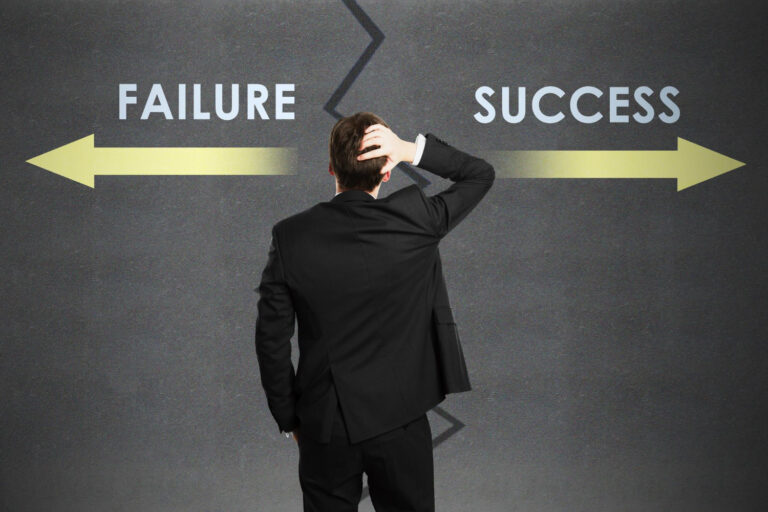How to Develop Resilience in the Face of Failure
Resilience means being able to handle Failure and tough times positively. It is about overcoming difficult situations and developing in a positive environment. Learning from adversity, getting social support, and caring for our emotions is key to this development. This concept is fundamental in psychology, sociology, and technology. Next, we will explore in depth what it is and its importance in our lives.
What is resilience?
Resilience is a widely studied concept in psychology and other disciplines that refers to people’s ability to cope with and overcome adversity and adversity. It goes beyond simple resilience, which refers to adapting and growing positively in adversity.
It is a clinical instrument that requires an ethical reference framework. This implies that a person must overcome adversity within the cultural norms in which he operates; that is, he must develop some sense of what is advisable and acceptable.
Resilience is based on the interaction between the person and the environment since both levels need to grow together. Therefore, from a psychological perspective, it is important to review what role relationships with others play in its development.
Suppose it is assumed that the individual’s resilience affects the group, creating collective resilient behavior. Why not consider that the resilience of the group also affects the individual? Why not speak of resilient groups not necessarily composed of resilient individuals and only collectively manifest this behavior among themselves?

Resilience means money
Resilience is a multidimensional process involving individual, family, community and cultural factors. The ability to recover and adapt positively in the face of stress and adversity allows people to overcome difficult situations and maintain adequate functioning in their daily lives.
Synonyms of elasticity:
- Recovery power.
- Adaptability.
- mental strength
- Psychological resilience.
- Personal development.

The importance of resilience in life
Resilience plays a fundamental role in people’s lives, allowing them to overcome Failure and adversity and face challenges positively. Below, we will explore why it is so important in various areas of life.

Personal and social development
Resilience plays an important role in personal and social development. When we are resilient, we develop the skills to face challenges, set clear goals, and work consistently to achieve them. Furthermore, resilience allows us to establish and maintain strong, healthy relationships, creating a support network that provides help, understanding and encouragement during difficult times.

Understanding Failure: Why It Happens and How to Accept It
Failure is like an unwelcome old friend who always shows up unexpectedly.
So why does Failure occur? Because it is inevitable. We can plan, anticipate, and prepare as much as possible, but sometimes, despite our best efforts, things go differently. It’s normal! Failure isn’t a sign of weakness or incompetence; it’s a stage everyone experiences in their career at some point.
But here’s the secret: real power lies not in avoiding Failure but in embracing it. Accepting Failure means accepting that things are not always in our control, and it is also the first step to bouncing back. Instead of seeing Failure as an end, see it as an opportunity to learn and grow. By embracing this reality, you will be able to develop the resilience you need to move forward stronger and more determined.

5 Habits to Work on and Improve Your Skills to Overcome Failure:
1. Be true to yourself.
Act according to your standards regardless of the opinions of others. This is a great competitive advantage in adverse times, when many people are paralyzed, representing a very high opportunity cost.
To be true to yourself, you must begin a process of self-knowledge, where you learn to love yourself with your qualities and flaws and implement actions for personal growth and improvement.
2. Be aware of your limitations.
Sometimes, I meet people with a dangerous excess of optimism. They do not analyze possibilities from reality and allow themselves to be carried away by their emotions of “why.”
You must be clear about your strengths to make as few mistakes as possible. Still, you must also be very aware of your weaknesses or areas for improvement to avoid unnecessary and sometimes very costly risks.
3. Practice selective attention
When faced with an overwhelming or difficult situation, such as an illness or breakup, it’s essential not to let your life revolve around it. It would help to focus on other horizons: personal goals, family, friends, etc. Keeping yourself busy with other activities is a great way to focus on pre-occupation: sports, leisure activities, hobbies.
4. Use humor as an asset.
There’s nothing like humour to lighten a problem. It’s not about masking them but making fun of them with respect and normality. This habit becomes a healthy habit that helps to keep oneself away from conflict and relieve stress. Admitting our mistakes makes us freer and less vulnerable. We are human, not perfect.
5. Trust those who can help us.
You cannot carry all the emotional weight of a problem or disagreement. Sharing your thoughts and feelings frees you from this heavy burden and allows others to express other perspectives on the problem.
Learn about the power of a morning routine

Analyze Failure: Turn a negative experience into a positive lesson
We’ve all had those times when nothing goes according to plan. But here it is, every Failure that hides a treasure, no matter how painful. This treasure is the lesson you can learn from. So, how can we turn this difficult moment into a real opportunity for growth? The first step is to go back a bit.
Take time to think about what happened. What went wrong? Where did things go wrong? Analyzing your failures in depth will help you truly understand the underlying reasons. This reflection is essential because it lets you see what caused this result and how to prevent it from happening again.
Now that you’ve identified the mistakes comes the important step: learning. Every Failure is a lesson in disguise. By learning valuable lessons, you’ll know what mistakes to avoid in the future. It’s like GPS: your Failure points you in the wrong direction, and by learning from it, you can recalculate your route so as not to fall into the same trap again.
If you need a little boost of motivation, think of these famous examples where Failure was the starting point of great success. Take Steve Jobs, for example. He was fired from his company, Apple, before returning to create the iconic brand we know today. Or JK Rowling, whose Harry Potter manuscript was rejected by several publishers before it hit the world stage. These stories clearly show that Failure is not the end but often the beginning of a new, even greater adventure.
So, the next time you face Failure, remember it’s a golden opportunity to grow, learn, and get closer to your goals.
Conclusion
Resilience is essential because it helps you rebound from setbacks, contributing to your success in life and work. You can learn from Failure by overcoming challenges and maintaining a positive outlook. As a seasoned traveller learns to navigate unfamiliar terrain, resilient people develop the skills to navigate life’s obstacles with grace and determination.
Developing resilience helps people strengthen their relationships, find their purpose, and reach their full potential. Remember, Failure is not a dead end but an opportunity for growth. Embrace challenges with a resilient attitude, learn from your mistakes, and persevere with unwavering determination. The journey to resilience may be challenging, but the rewards are immeasurable.”
If you find this content helpful, share it with your friends or on social media. Click the button below: